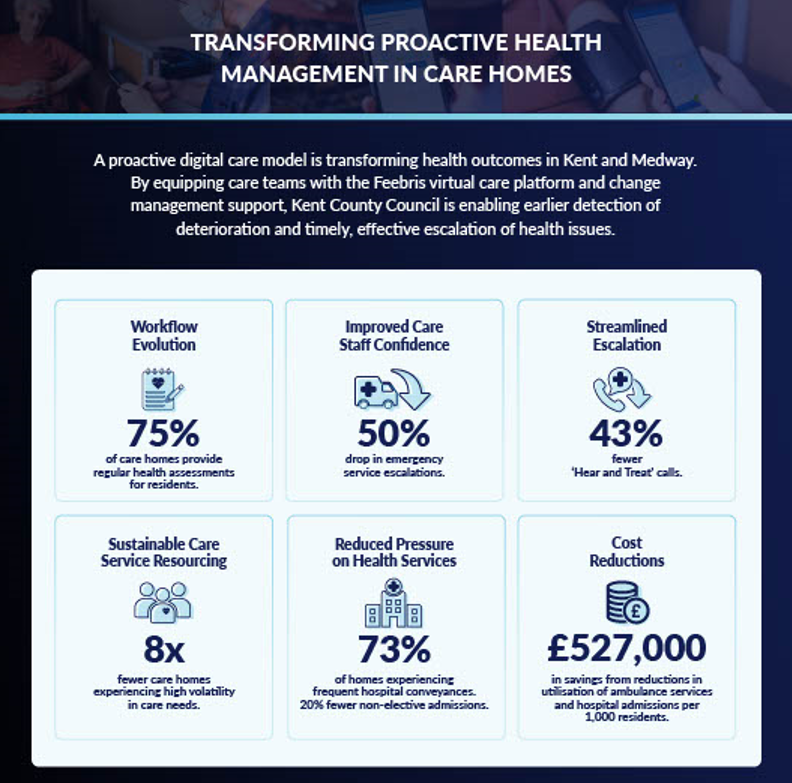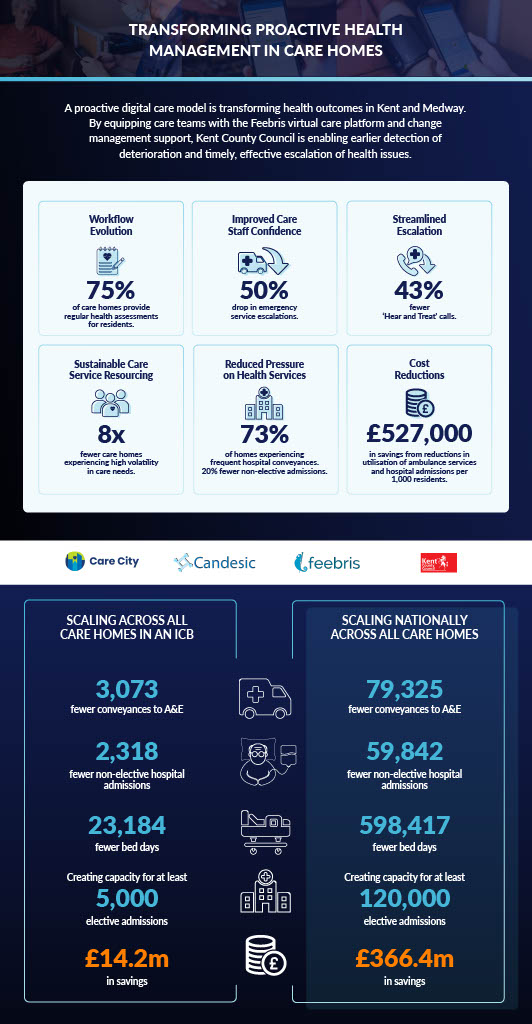Care City Co-Authors Major Report Unlocking New Era of Digital Care in Care Homes

A new white paper reveals how a digitally enabled model of care in care homes can improve outcomes, reduce hospital admissions, and save the NHS millions—offering a blueprint for truly integrated, preventative care.
We are proud to be a co-author of a landmark white paper released today that demonstrates the potential for a new, digitally enabled model of care in care homes to transform resident outcomes and ease pressure on the NHS — with projected national savings of over £360 million annually.
The report, produced in collaboration with Kent County Council, Candesic and Feebris, lays out a blueprint for integrating technology, proactive care, and multi-disciplinary collaboration into everyday care delivery. The model empowers care staff with the training and tools to detect and respond to health risks early — preventing unnecessary hospital admissions and improving quality of life for residents.
As a social enterprise based in North East London, we work in partnership with health, care, local government and communities to design, test, and scale innovations that improve lives. With a strong track record in research, workforce development, and digital transformation, we bring to this work a deep commitment to reimagining how health and care are delivered in and with communities.
A Blueprint for Integrated, Preventative Care
The white paper is based on a 12-month pilot involving 24 care homes in Kent and Medway using the Feebris digital health platform. The results demonstrate powerful system-wide impact, including:
- 20% reduction in hospital admissions
- Over 50% reduction in above-average ambulance callouts
- £530,000 in NHS savings per 1,000 residents annually
- 5.2X return on investment
- 8x fewer care homes experiencing high volatility in care needs
The evaluation highlights that 75% of participating care homes adopted proactive health workflows, improving stability, supporting workforce development, and ultimately keeping residents healthier for longer.

This report is proof that social care can and must play a bigger role in the future of our health system. By empowering care staff with the right tools, training and trust, we can improve outcomes, reduce emergency demand, and deliver more joined-up, preventative care. It’s been a privilege to support this work and co-author a blueprint for transformation that we hope will inspire action across the country.
Matt Skinner, CEO, Care City
Removing Barriers to Scale
The report also identifies structural challenges to wider adoption — from financial disincentives in social care to workforce development gaps — and sets out practical recommendations to overcome them, including:
- Reforming funding models to allow care providers to invest in preventative roles and technologies.
- Investing in the social care workforce to enhance capacity, retention, and recognition of their role in delivering health outcomes.
“We are proud to be working with Kent County Council on this innovative project and are excited to see the impact already made in transforming outcomes for care teams and for residents – proving that investment in social care is not only strengthening the sector but also providing a route to reducing growing pressures on the health system. It’s clear that we’re currently at a crossroads, and now more than ever, we need organisations to come together, share ideas and find new ways to shape the future of care delivery, tackling growing challenges head-on.”
Dr Elina Naydenova, CEO and Co-Founder of Feebris
Interested in piloting this model in your area or learning more? Contact us at theteam@carecity.org



